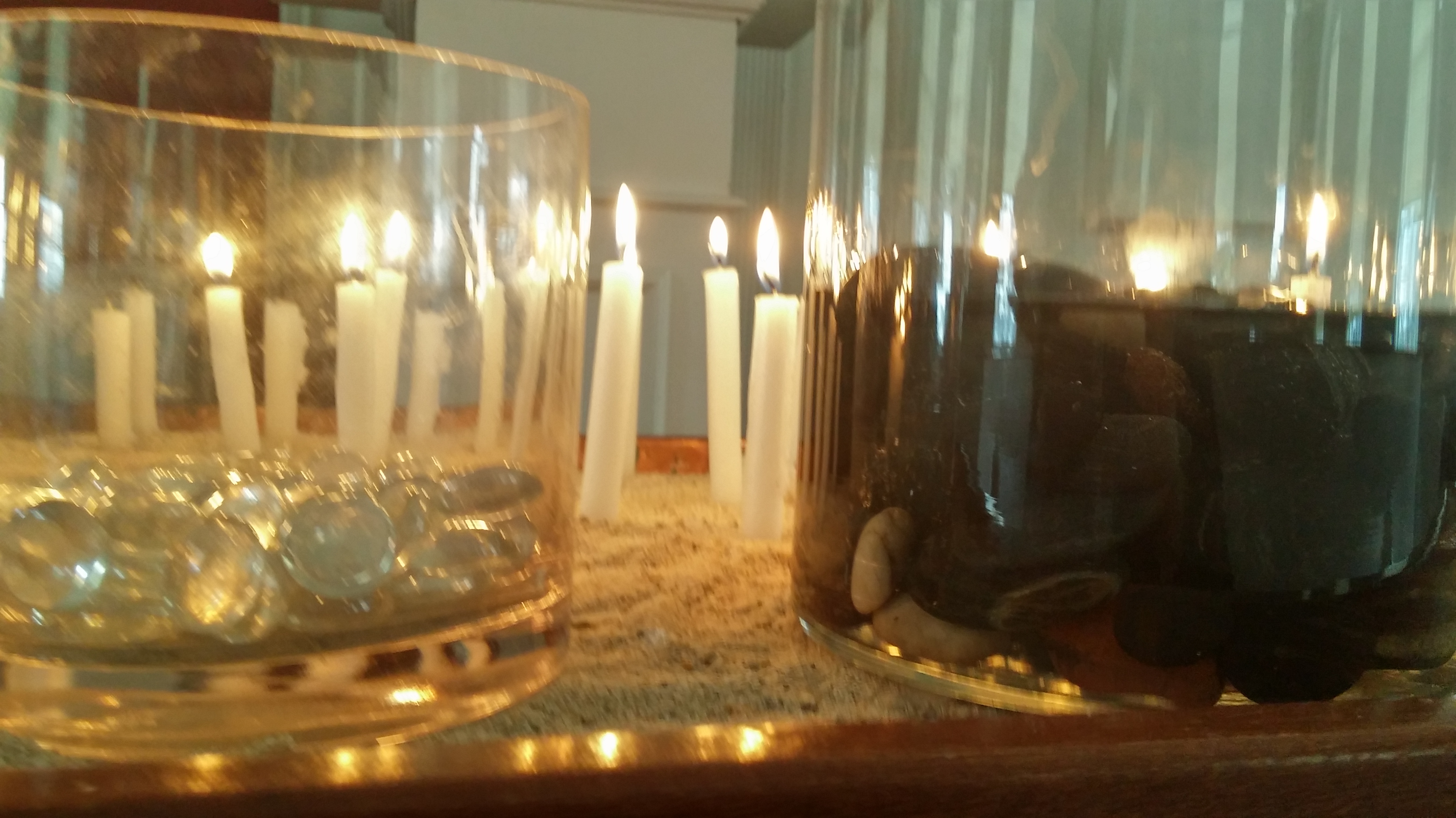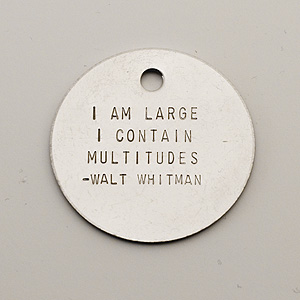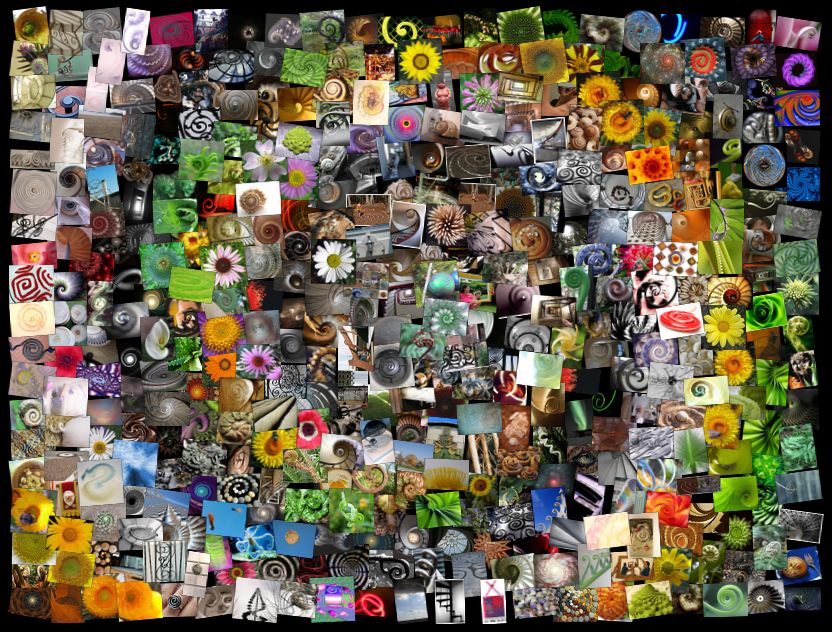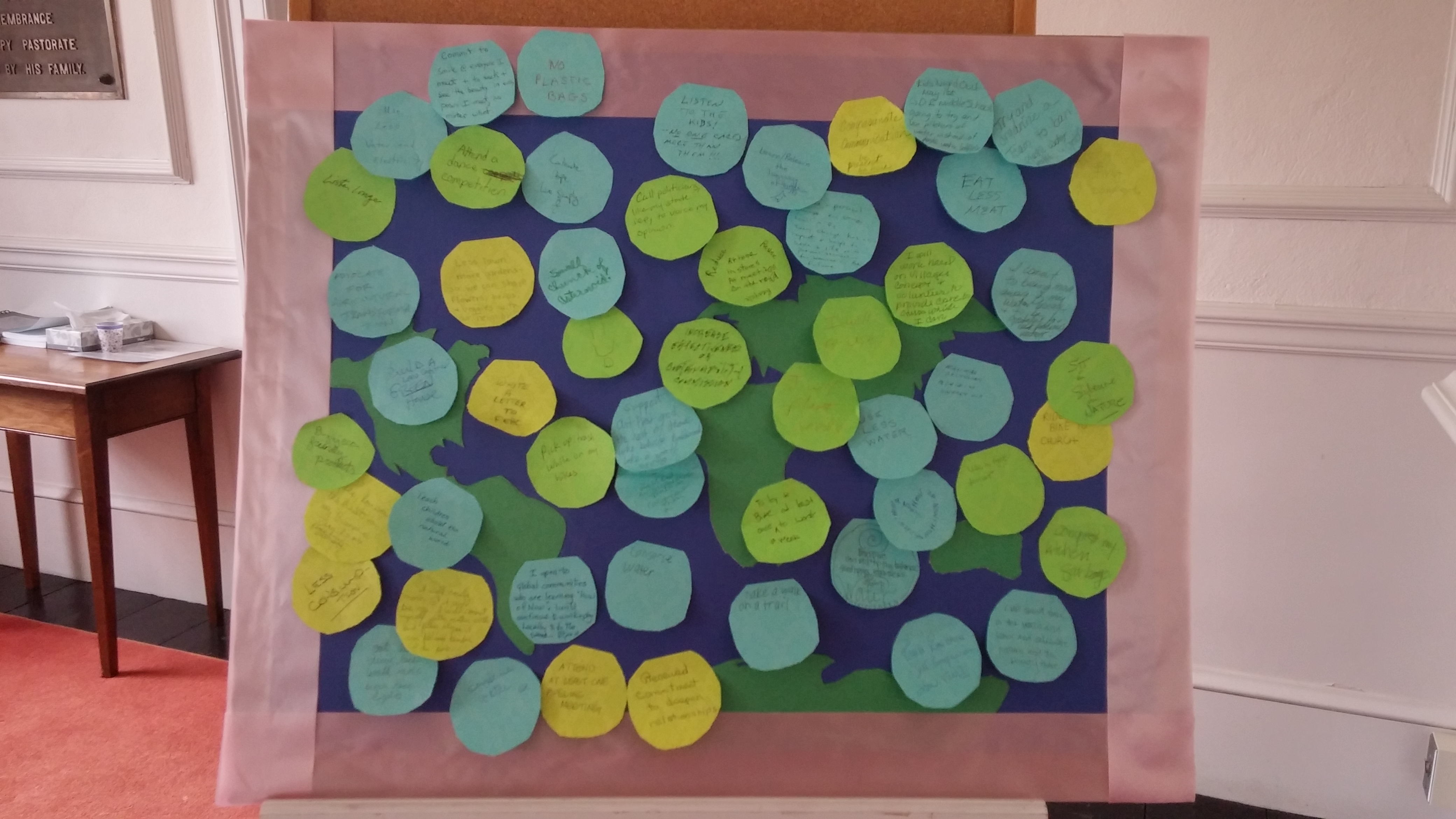First Parish Church of Groton, April 26, 2015
Audio version here.
Perhaps you know this parable, which invites us to see with new eyes, or eyes that are willing to see newly:
There once was a simple farmer who lived and struggled alongside his neighbors and friends, trying to exist and fulfill a peaceful life. One day news arrived from far away, that his old loving father had died. His neighbors gathered to grieve, but the farmer simply said, “Bad luck? Good luck? Who knows?”
In time relatives brought a very fine horse of great cost and fine breeding, left to the farmer by his father. All the villagers and neighbors gathered in delight with him to celebrate his good fortune, but he just said, “Bad luck? Good luck? Who knows?”
One day the horse escaped into the hills and when all the farmer’s neighbors sympathized with the old man over his bad luck, the farmer replied, “Bad luck? Good luck? Who knows?”
A week later the horse returned with a herd of wild horses from the hills and this time the neighbors congratulated the farmer on his good luck. His reply was, “Good luck? Bad luck? Who knows?”
Then, when the farmer’s son was attempting to tame one of the wild horses, he fell off its back and broke his leg. Everyone thought this very bad luck. Not the farmer, whose only reaction was, “Bad luck? Good luck? Who knows?”
Some weeks later the army marched into the village and conscripted every able-bodied youth they found there. When they saw the farmer’s son with his broken leg they let him off.
Now was that good luck? Bad luck? Who knows?
It is Earth Day. Well, it is the Sunday after Earth Day, which counts as Earth Day in Church.
Earth Day is a joyful event — a chance to celebrate the planet and its natural richness, to connect with the spirit of generation and regeneration. It is opportunities to learn about how we can reduce in greenhouse gases or carbon footprints, gathering together in community to bless and embody the interconnected web of which we most definitely a part. A chance to experience and express our gratitude for this, our only planet.
And…
Earth Day, especially with each new micro-bit of data, each new study released from a reputable source, each latest news report on nearly all of the channels or web sites worth trusting, each alarming announcement from some United Nations office, has its shadow side whose most recognizable name is Climate Change. These shadows are both deep and ragged, often causing us to either be paralyzed with fear or to turn away in denial (or both). As Joanna Macy says,
All of us are prey to the fear that it may be too late, and thus any effort is essentially hopeless. Any strategy we can mount seems so puny in comparison with the mighty systemic forces embedded in the military-industrial complex. The accelerating pace of destruction and contamination may already be taking us beyond those tipping points where ecological and social systems unravel irreparably.
Joanna Macy is a Buddhist scholar and environmental activist who has developed something called The Work That Reconnects. The Work That Reconnects follows a four-point spiral – perhaps you will recognize it in the flow of today’s worship service and in this sermon. It starts with gratitude (including recognizing new life, new members, and joining our sparkling glass bead-jewels into a greater whole), honoring our pain (and surrounding it with tears of holy water), seeing with new eyes, and going forth.

The intention of this work is to help us not be stuck, paralyzed by those deep, ragged shadows, but to face them, and in so doing, find ways to be part of the good that is still very much possible.
What are the options? In the midst of what we know about Climate Change, how it impacts the Have-Nots much more direly than the Haves; how some changes, like gigantic sheets of ice melting, are happening more rapidly than originally forecast, even just a few years ago; how so many animal species have gone extinct and even more are well on that same path?
I see five broad strokes of options:
- Option #1: Use up natural resources faster, while they are still available, often purely for profit.
- Option #2: Nihilistic hedonism — seeking material and corporal pleasure no matter the impact on the earth or on community – what we might call, “You only live once” attitude.
- Option #3: Stick our heads in the sand.
- Option #4: Do what one can with the belief that we can still tip the balance and still save humanity and nature as we know it. (More or less.)
Even though my North American life means that even without trying, I take part in one, two, and three on a regular basis (We all do. We are in this together.), these options, to be blunt, suck. (That is theological terminology for really really bad.)
What I observe is that people of good conscious have been focusing on Option Four. But this is one is getting harder and harder to do. Not because we can’t do good things in the world. The harder and harder part is finding evidence for the latter part: that we can still tip the balance, that we haven’t already passed the point of no return.
In her book, This Changes Everything, Naomi Klein believes it is possible if we act now and we act collectively and fundamentally – changing not light bulbs, but our whole economic system. A gargantuan task, but possible, she says. But not for much longer, if we want it to make a difference in keeping our planet liveable for human beings. Click here for a two-minute book trailer.)
What catches my attention is Option #5. The one I haven’t named quite yet.
Klein, Macy, our own Unitarian Universalist environmental activist Tim deChristopher, and many others – perhaps folks sitting here in this sanctuary — believe that the climate crisis just might be the “very existential crisis we need to release and unleash […] suppressed values on a global and sustained scale, to provide us with a chance for a mass jailbreak” [Klein] from certain doom.
The very thing we need to see through new (and yes, urgent) eyes.
What suppressed values? What is Option Five?
It is focusing not on whether, in the end (whatever that means) we will survive, but focusing instead, on who we will be and how we will act in the meantime, in the Now.
What kinds of actions and what kind of people will we be – moral? compassionate? generous? justice-seeking? This is Option Five: choosing to do good not knowing what will happen in the end, doing good in the face of uncertainty, without guarantee of result or even survival.
Beloved farmer, poet, prophet Wendell Berry tells us, “All we can do to prepare rightly for tomorrow is do the right thing today…. If using less energy would be a good idea for the future, that is because it is a good idea.”
Klein gives examples from both ends of the continuum of possible How-actions: how there has been amazing generosity among strangers in the face of catastrophes (blessings on the people of Kathmandu in Nepal in the midst of their devastating earthquake), global responses of aid when extreme weather has devastated places and people.
Also how climate change is already “coarsening” us, with humanity acting as if empathy, and not fossil fuels, is the finite resource.
 Our first principle affirms the inherent worth and dignity of each individual and our seventh principle affirms our belonging to the interdependent web of all existence and in between we hear Walt Whitman’s beautiful words from Song of Myself, that we “contain multitudes.” We say, amen, we are a mess of contradictions: persistent empathy and solidarity, as well as compassion fatigue and coarsening.
Our first principle affirms the inherent worth and dignity of each individual and our seventh principle affirms our belonging to the interdependent web of all existence and in between we hear Walt Whitman’s beautiful words from Song of Myself, that we “contain multitudes.” We say, amen, we are a mess of contradictions: persistent empathy and solidarity, as well as compassion fatigue and coarsening.
I have decided to call this Option Five, to give it more substance in my life, the How of Now rather than the What of Then. Choosing to guide my actions and commitments to how I want to be now, rather than trying to know what will happen then, in the future.
This is where our final stop, the fourth point, on the spiral brings us: going forth.
Because even existing here in the long shadows of damage of our own making, we believe that we are called to be people of compassion over consumption, of justice and fairness over security and I’ve-got-me-mines.
Ours is a faith that aspires to creating Beloved Community, not Beloved Certainty.

The wise Joanna Macy says it this way:
…there is no way to tell how the larger story will end. So we learn again that hardest and most rewarding of lessons: how to make friends with uncertainty; how to pour your whole passion into a project when you can’t be sure it’s going to work. How to free yourself from dependence on seeing the results of your actions.
Did you notice the post-it notes in your pews?* I invite you, during the postlude, to write one thing (or more than one thing), that you commit to doing as you go forth into this uncertain world. Who do you want to be and how do you want to be that person?
What action – of compassion, of conservation, of (social) change, of creativity, of connection – will you take knowing that you are part of the interdependent web of all existence?
Perhaps it will be to plant an extra row in your garden, that you might give fresh produce to the local food pantry this summer.
Maybe you will choose to read that article with the headline about climate-change-doom that your fear tells you to skip over, saving the cute-kitten-video-clip for another time.
Perhaps you will go to a local meeting about the Kinder Morgan pipeline and learn about the organizing to protect the land and the landowner and our communities (let me tell you, in Western Mass, where I live, they are learning civil disobedience rather than cede their land, homes, and forests to this project).
Maybe you will take part in the Village concept right here: taking care of ourselves across the lifespan, here, in our hometown, in our own homes.
Maybe it will be to renew your commitment to keep your re-usable grocery bags in your car and to never use new plastic bags again. You can impose your own plastic grocery bag tax: if you forget the ones you already own, you are not allowed to use the free ones at the cash register, but must buy a new re-usable bag. That will get you to remember to keep them in the car and bring them with pretty darn quick.
Perhaps you will spend more time than you usually do sitting in silence in a place of nature, opening to the fact and feeling that there really is no separation, that we are part and particle of nature as it is part and particle of us. Then let that deep truth guide your actions.
Whatever compassionate, conservationist, justice-y, creative, change thing you will do to go forth, write it on that post-it. Memorize it, which is to say, place it on your heart.
Then, as you leave the sanctuary, there is a poster of the earth, made by the youth in our Middle Matters program, made by people whose lives will bear the brunt of our mistakes and our strivings much more than we can ever know. Place it there, as our communal tribute and promise to go forth, marshalling hope in the face of the uncertain, choosing the How of Now, not the What of Then.

Let me close repeating again the wisdom from Wendell Berry: “All we can do to prepare rightly for tomorrow is do the right thing today…. If using less energy would be a good idea for the future, that is because it is a good idea.”
May it be so. Amen. Blessed be.
* Post-it notes made, according to the package labeling, with adhesive derived from plants and paper from trees sustainably managed, reducing the use of petroleum and making them recycle-able (which regular post-it notes are not).
A good one, Karen! Sorry I missed it “in person.” I do believe the “how of now” is all we have, the best we have, and perhaps what will sustain us!
You were there in spirit!